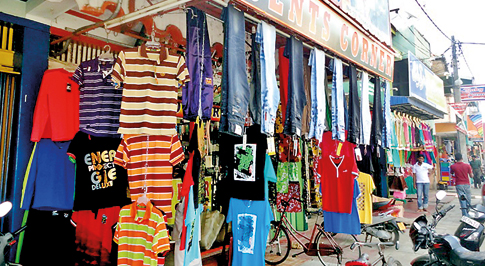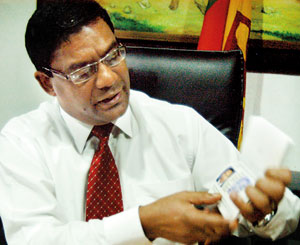News
Illegal textile trade ripping through local garments
By Charundi Panagoda and Deva AthiranIllegal textile trading in the Eastern province is taking its toll on the legitimate textile trade of local businesses.
Tamil and Muslim textile dealers in Batticaloa told the Sunday Times that their businesses and income have been seriously affected by Indians who smuggle in garments and clothing items. The businesspeople said they were helpless and that the Government should do something about the problem.

Batticaloa town: Where the local industry faces tough competition from illegal Indian trade
- Batticaloa town: Where the local industry faces tough competition from illegal Indian trade
“We have spoken to the Trader’s Society and the Police about our problems with the unlicensed Indian traders, but nothing has been done,” one trader told the newspaper. “When we started voicing our concerns, there was a lull and the Indian traders were not to be seen. But they are back.
We have no idea where they go after they do their business, but we know that some of them were arrested in Kaluvanchikudi.”During the war the illegal textile trade was concentrated in the North East, and has increased since the end of the war. According to local trader K. M. M. Kaleel, the Indians continue to do business in Thirukovil, Akkaraipattu, Kalmunai in the Ampara district, and to a lesser degree in Batticaloa.
The Indian traders purchase low-priced second-hand garments by the kilo and, posing as relatives of local residents, sell their wares in select areas, sources told the Sunday Times.
“Locals buy, thinking they are getting a bargain, but in fact they are being cheated. For example, saris five yards long are sold as six-yard saris,” another local trader said. “The Indians must be getting good profits, otherwise how could they cover their expenses, including air tickets?”
The illicit textile trade affects only the small textile businesses, not the big business mudalalis. A Tamil textile trader told the Sunday Times that the Indians do not have to pay duty, income tax, wholesale taxes, or VAT. “They only pay for rent and travel. We local traders have to take out loans to pay our staff,” he said.
Some Indian traders are also believed to be dealing in drugs. In the past, Indian traders would appear only during festive seasons, when they would make a killing at the expense of local businesses. But lately they have been focusing their business around the monthly pay day for government employees. Some even sell goods on credit.
There has been a drop in business for Indian traders in Batticaloa since the arrest of some traders and warnings from the courts, but business is as usual in Kokkaddicholai, which has a largely Muslim population.
The Indian traders come on tourist visas but engage in business or work as labourers, thus violating tourist visa regulations, Police spokesperson Ajith Rohana told the Sunday Times.
It has been observed that Police action has been marginal. This month, two Indian women were arrested in Kalmunai on charges of doing business while on tourist visas. Last month, only one such arrest was made, in Putthalama.
“Generally, we take action when there is a noticeable increase in the number of traders, or if local traders are suffering,” Mr. Rohana said.
A Customs official told the Sunday Times that Indians sneak in textiles in passenger luggage. “There are hundreds of regular passengers going up and down between India and Sri Lanka purely for this purpose,” he said. “Airport officials don’t have the resources to check all items. Either the authorities crack down on textile smuggling altogether, or there should be a proper tax.”
















